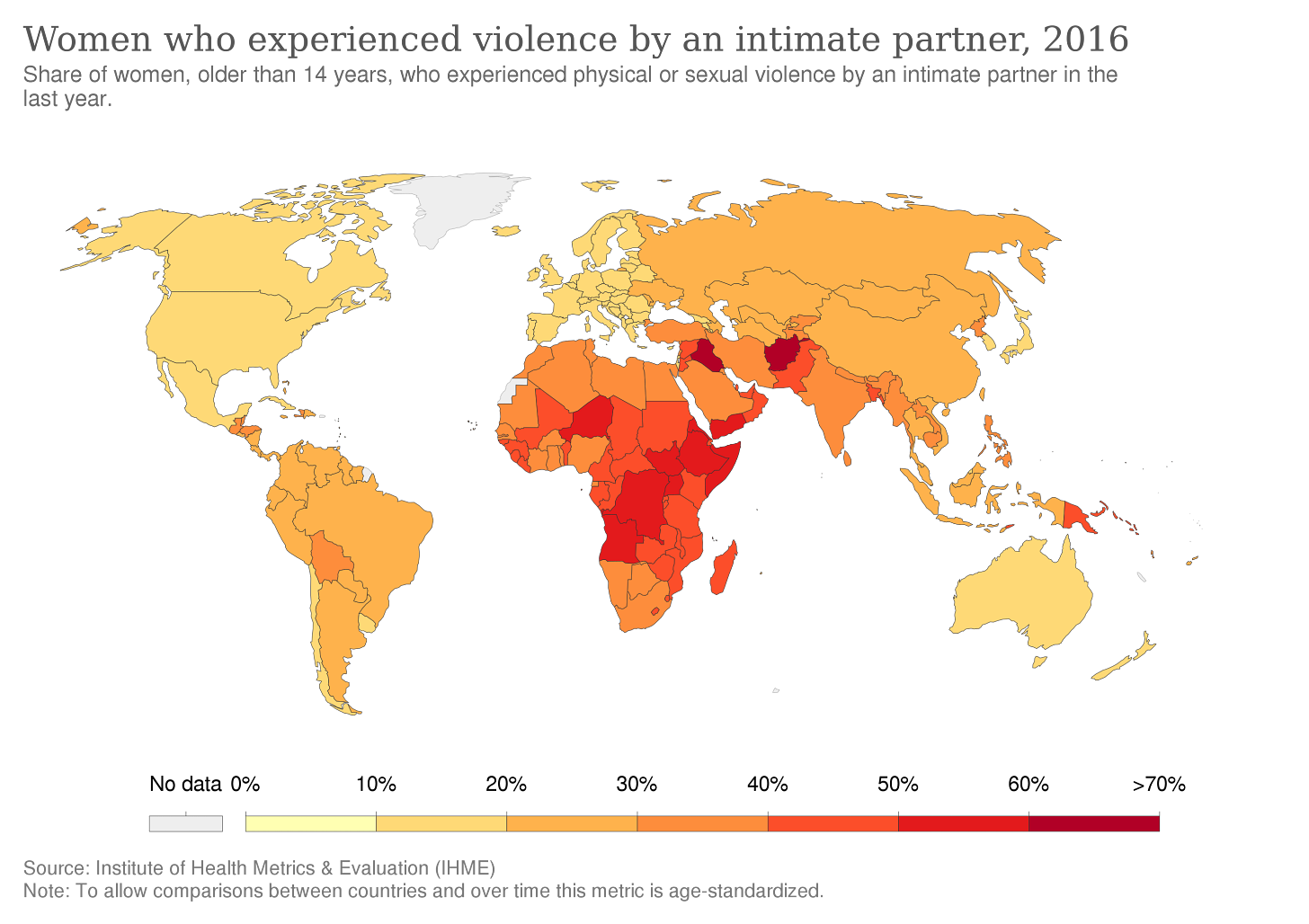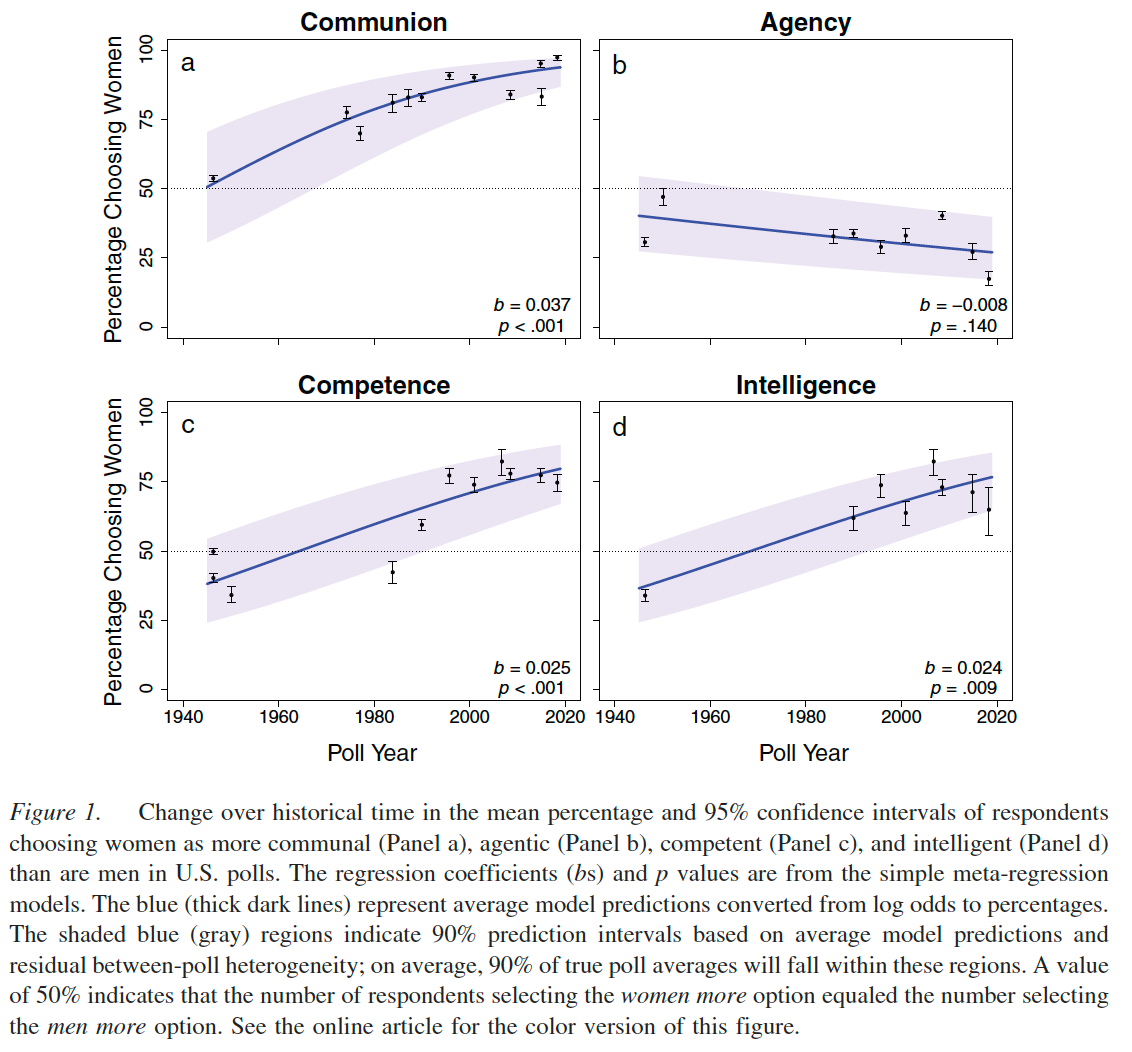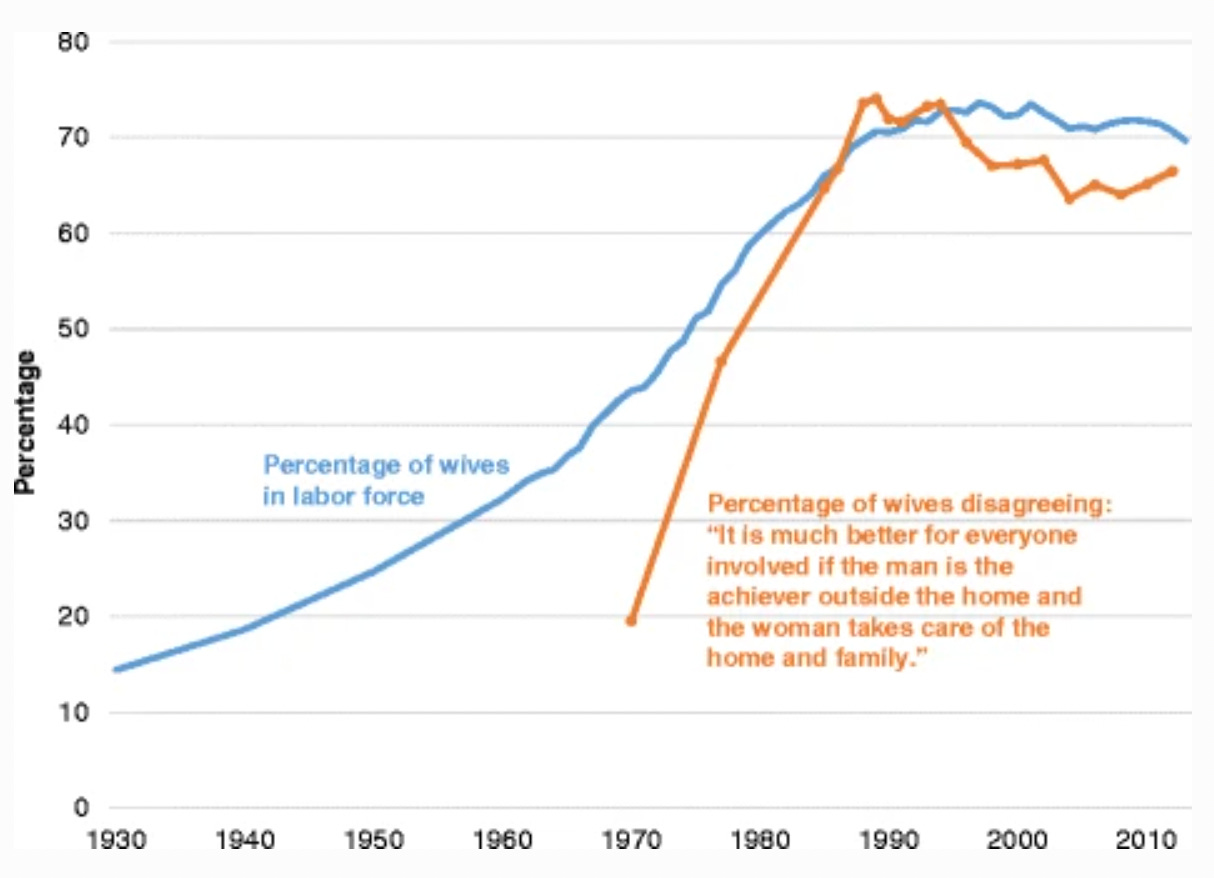Why Does Horrific Abuse Persist in the Most Gender Equal Countries?
France, one of the most gender-equal countries in the world, has been rocked by horrifying revelations of organised rape. For over nine years, Gisèle Pélicot’s husband invited online strangers to rape her while drugged. Hundreds of men saw these advertisements yet stayed silent and allowed the continued torture.
This horrifying incident throws into stark relief the asymmetric progress towards gender equality. Women are contending for the presidency, yet some homes remain bastions of tyrannical despotism, cruelty and abuse. In the United States, 26% of women have been slapped by an intimate partner, and 1.3 million women reported being raped by a partner in the past year.
What explains this stark contrast—rapid progress in some areas of gender equality, yet stubborn persistence of inequality in others? I propose that structural transformation has empowered women to build careers, forge alliances, and reshape public culture. However, within homes, individuals often find themselves isolated, dependent, and crucially, lacking what I term a 'Reverse Dominance Coalition'.
Female employment soared with structural transformation
Structural transformation and increased demand for skilled labour have propelled female employment to new heights across the US, Europe, Latin America, and East Asia.
This shift is increasingly seen as financially beneficial, with 77% of US adults saying that children are better off if both parents work. Women now earn 39% of total earnings nationwide.
This trend is mirrored globally. In Mexico, Zambia, and Cambodia, interviewed men consistently emphasised the material benefits of dual-income households. Of course, financial considerations are’t the sole motivator; some men deeply love their wives and want them to be happy pursuing independent careers!
Women have gained status
As women demonstrate their competence in socially valued domains, perceptions shift. They're increasingly seen as equally intelligent and deserving of status. Women have also reshaped public discourse; authors and journalists have penned trenchant critiques of inequality, reinforcing righteous resistance.
These shifts have dramatically altered cultural expectations. The overwhelming majority of Americans now view women as equally competent and intelligent, firmly rejecting the notion that 'a woman's place is in the home'.
The Power of Reverse Dominance Coalitions
As women forged into the public sphere, they also built what I call ‘reverse dominance coalitions’* - a powerful mechanism of egalitarianism. This term, borrowed from studies of egalitarian hunter-gatherer societies, describes how groups collectively mock, bully, and berate those who seek to dominate. It’s an equally apt framework for understanding feminist solidarity.
Reverse dominance coalitions (RDCs) can:
Nurture critical reflection, causing people to question inequalities;
Reinforce righteous resistance
Build sorority and protect dissenters from bullying
Show wider support for equality and overcome despondency traps
Shift expectations that sexism will not be tolerated.
*Christopher Boehm introduced the term ‘Reverse Dominance Hierarchies’, then Daron Acemoglu via email suggested this better alternative.
Friendships!
Friendships are the most basic foundation of Reverse Dominance Coalitions. When bullied at work, mistreated by boyfriends, or unsupported at home, a woman turns to her friends. They listen, empathise, and lambast unfairness.
Friendship groups are absolutely crucial to cultural change. By speaking out, sharing ideas, and thereby realising broad support for social change, people come come to expect and demand better. While one person may be privately critical, support from respected others is validating and emboldening!
Consider the case of Simone Biles and her teammates, who stood united against abuse. Their solidarity exemplifies how female friends embolden each other worldwide—celebrating shared victories, dismantling rape myths, and collectively affirming women's equal competence
The Power of Female Networks!
Research has shown the potency of women’s professional networks. female networks in professional settings. A striking example comes from MBA programmes: female students randomly assigned to cohorts with more women are significantly more likely to become senior managers. Why? These networks introduce each other to female-friendly firms where they can thrive.
This phenomenon extends to politics. In Georgia, US, Black women have leveraged strong community networks to secure labour rights, criminal justice reform, and voting rights.
Public Dissent: A Catalyst for Change!
Public dissent acts as a powerful catalyst, enabling ideas to proliferate across peer groups. Inspired by advocates in media, teenagers message friends, collectively exploring radical alternatives. We’ve seen tangible results: after thousands demanded zero tolerance for sexual harassment through the #MeToo movement, more French women felt emboldened to quit quit risky workplaces. In South Korea, sustained activism has similarly nurtured feminist consciousness and improved accountability at the highest levels—senior men have been compelled to step down.
The 2023 Tiktok sensation ‘Azul Mineral’ by Lau Crespa exemplifies how feminists can embolden each other online. On International Women’s Day, Latin American feminists marched in droves, their resistance reverberated on social media, set to this anthem.
“We gather below and today we are.. You don't know what fear is if you didn't have to be born a woman Like a horror story that you always have to read Ask your sister, your mother, your daughter and you will get goosebumps 7000 years silent, raped and murdered for your pleasure You don't know what fear is if you didn't have to be born a woman”
Similarly, “A Rapist in Your Path”, a 2019 Chilean protest song, went viral globally and has been performed in multiple languages. Banding together in unison, thousands of women publicly delegitimise rape myths. This helps dismantle shame and stigma, which trap victims in silence, enabling impunity for abuse.
Mexican and Spanish women who’ve participated massive demonstrations tell me that they feel empowered by the sorority. Marching together in their thousands, they are even more emboldened to resist.
Everyday Resistance: Challenging Machismo
In Catalonia, where feminism is a common topic of conversation, young women are publicly decrying inequalities. Men see this and moderate their behaviour. Carlos, a 45-year-old scientist, insists, ‘Sexist jokes are not okay, there's a clear line’. Santiago (who’s just finished school) shared examples of his friends resisting machismo:
When a jilted guy called women ‘whores’ (puta) a female friend replied, ‘No, a woman may decide who they wish to go out with’.
Santiago learned to be more sensitive after his female friends complained about aggressive behaviour during football matches.
In school, gender parity is mandated for class representatives. When some boys grumbled, girls insisted on equal representation.
When classmates claimed ‘Boys are better at maths and science’, girls countered with evidence of their academic success.
Young women are even changing social norms, preferring handshakes over traditional cheek kisses with strangers.
These examples show how Reverse Dominance Coalitions, operating in conversations, street protests, and municipal councils, are publicly contesting taken-for-granted inequalities.
Men who seek approval from these groups - be they fathers, friends, employers, or politicians - must adapt to new expectations. They listen, learn, and adjust their behaviour accordingly.
Last year, alarmed by rising femicides, the Spanish government convened an emergency meeting. Citizens are protesting en masse, demanding decisive action against this scourge of violence.. Femicides also occur across Europe. But - in the absence of powerful Reverse Dominance Coalitions - this violence rarely makes headlines.
Reverse Dominance Coalitions can also benefit men, by loosening cultural straitjackets. Diego, a small-town municipal worker, explained how previous generations of men felt compelled to act 'macho' to gain respect, lest they be mocked as 'sissies'. Today, that pressure has largely dissipated. A striking example of this shift is the overwhelming majority of Spanish fathers who now take paternity leave.
From Alabama to Puebla, Barcelona to Phnom Penh, Reverse Dominance Coalitions are rejecting machismo, calling out mansplaining, and building sorority. Dissenters are not only protected but emboldened. Wider solidarity and defiance enable RDCs to establish new, egalitarian expectations. Others increasingly comply, for fear of being publicly lambasted and ostracised. This can nurture greater equality.
Social media can also enable reverse dominance coalitions. Collectively, low-status individuals can decry unfairness, belittle bullies, and reinforce each other’s arguments. By publicly berating manels and mansplaining, they cultivate a sense of righteous resistance. Onlookers realise that disrespect is no longer tolerated. In South Korea, right now, women are protesting against deep fake pornography.

The household is different.
A wife is attached but alone, without allies.
Households harbour a distinctive potential for tyrannical despotism because the lower-status individual, typically the woman, is deeply attached yet isolated. It’s almost impossible to form a Reverse Dominance Coalition. Concerned for her children's wellbeing and her social standing, a woman may feel compelled to stay, even as she struggles to challenge the terms of her incorporation. Unlike the public sphere, these dynamics unfold behind closed doors, hidden from potential external allies.
This isolation partly explains why gender gaps in housework persist. Without allies and reluctant to 'rock the boat', a woman may find herself shouldering an unequal burden. Seldom seeing men share care work, she may also take inequalities for granted or doubt the possibility of change.
Globally, sons grow up in homes where men are served food and treated with greater respect. They too anticipate female servitude. Denial is tantamount to disrespect. In the outskirts of Istanbul, Yusuf asked his wife Elif for a cup of tea. She refused, so he beat her to a pulp.
This Patrilocal Trap is especially dire for economically dependent wives who fear social ostracism upon divorce. In such cases, husbands may subject them to brutal torture with impunity. Examples abound:
In Karnataka (India), some men beat their wives to extract higher dowry payments.
In Puebla (Mexico), José recounted that his grandfather brought home his girlfriend and asked his wife to cook. When she refused, he shot her in the thigh. She remained married, hobbling on crutches.
In Lusaka (Zambia), Thandiwe detailed that her husband used to rape her. He also defecated in bed because he delighted in the degradation of her washing the sheets by hand.
Fatima (a 55 year old Arab cleaner from Midyat) was beaten by her husband’s entire family. She described life as being in a ‘cemetery’ (translated).
Young girls are equally vulnerable. During my observation of an 'assertiveness training' session at a school in Kitwe, Zambia, 15-year-old Chrissy approached me, sharing that she’d been repeatedly raped be her uncle. In Midyat, Turkey, 18-year-old Dilnaz was severely beaten by her father and brother for two hours after being publicly seen with her boyfriend. Like her cousin who was killed for eloping, Dilnaz was punished for ‘blackening their honour’. She lived in fear of her own family, desperate for escape.
Why don’t women resist at home?
Over the past 13 years of research in Mexico, Morocco, Turkey, The Gambia, Zambia, India, Uzbekistan, South Korea, Hong Kong, Vietnam, and Cambodia, I have met many young women who are privately critical and bitterly resent sexist expectations. But resistance is difficult. Marriage and motherhood are expected, culturally celebrated and thereafter a woman may be alone.
Female solidarity is especially difficult under the ‘Patrilocal Trap’. If women are socialised to obey their in-laws and stay put, then some do not even contemplate escape, let alone dissent. “La ropa sucia se lava en casa” explained my friend in Santa Maria la Ribera (Mexico). Dirty laundry should not be aired in public.
Rarely witnessing accountability for male violence, victims often fall into what I term a 'Despondency Trap'. While legal rights for Indian women exist on paper, they are seldom claimed and poorly enforced. The criminal justice system is hampered by sexist attitudes and inadequate resources. Although women accompanied by advocates (who lobby on their behalf) stand a better chance, the overwhelming majority have no such allies.
The dearth of reverse dominance coalitions within the household may also explain why women continue to shoulder the lion’s share of the housework. While a woman may wish for help, she is reluctant to rock the boat.
Let me share an exception which proves the rule.
A Glimmer of Hope: Maggie's Story
Maggie, a married working mother of two in small-town Alabama, could count on one hand the number of times her husband had cooked. However, a pivotal moment occurred when the family watched an episode of "Wife Swap" together. Maggie's teenage daughters, appalled by the men's treatment of their wives, vocally expressed their outrage. Though Maggie's husband remained silent, he was visibly affected.
He started cooking meals, bringing take-out, and washing the dishes. Maggie didn’t know how to respond. She didn’t want to congratulate him as she didn’t want to imply it was a mighty achievement. Rather, he was finally doing his share. Diplomatically, she phrased it thus, “I’m so happy about this dynamic, where everyone is contributing, I’m really happy”.
Her daughters had formed a reverse dominance coalition. Their vocal criticism of gender inequality translated into real change; collective voices can challenge and reshape deeply ingrained behaviours.
Reverse Dominance Coalitions are Crucial For Egalitarianism!
My message is simple.
Egalitarianism does not just ‘happen’, as a result of women getting jobs. It’s actually a set of cultural expectations, which we collectively enforce and institutionalise.
Reverse Dominance Coalitions, whether formed through friendships, professional networks, or public protests, have been instrumental in challenging sexism, validating dissent, and reshaping societal expectations.
However, the household remains a challenging frontier. The unique dynamics of family life - where individuals are often isolated, emotionally attached, and concerned about their children’s wellbeing - can make it difficult to form the coalitions that have been so effective in public spaces. This explains why gender gaps in housework persist and why intimate partner violence remains pervasive, even in societies that are otherwise extremely progressive.
My solidarity to all survivors of abuse. x





















This explains a lot about some Taliban policies that superficially make no sense (like ordering the closure of beauty parlors, which were already women-only spaces and didn't raise any issues of sexual propriety).
The social ideal they're trying to enforce here is that men should have same-gender social networks beyond their extended families, but women should not. It seems as if family members might not be effective as members of a Reverse Dominance Coalition... the power of those relationships is basically "the strength of weak ties".
Thank you for this. It is super helpful for women who may seem/act/feel otherwise reasonably independent and yet struggle against male dominance in the private/household sphere. So common! I will use this in workshops and trainings.